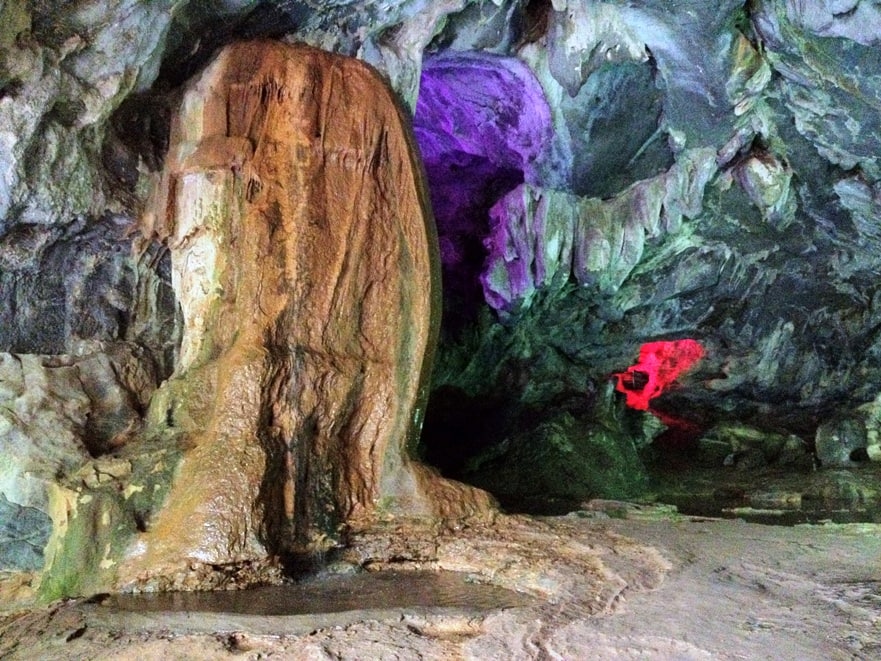Retreats may also be classified in the following three ways:
- self-imposed retreats,
- master-imposed retreats,
- retreats for breakthrough in practice.
For master imposed retreats, practitioners must abide by all the rules and regulations laid down by the master and participate in all temple activities. The retreat venue must have a picture of the master or his physical body present. Practitioners must be silent both inwardly and outwardly. Classic texts and scriptures are covered and on the day immediately after the retreat, practitioners have to write 3 questions on pieces of
paper which are then placed in a box. The teacher will randomly draw from these questions and answer them. If a practitioner raises a question that has already been answered, then some sort of disciplinary action will be administered, like kneeling for a period of time.
Food, if consumed, needs to be taken in a proper place like a dining hall. Practitioners typically prepare for Taoist Bi Gu (辟谷) by consuming only fruit (no grains) for seven, eight, or ten days prior to the retreat. This form of preparation also has its own rules, purposes and methods.
The Taoists believe that one of the gravest acts of being unfilial (不孝) is not being able to recall your parents’ faces and voices after their passing. On one’s birthday, one should observe certain rules, fast, and engage in the practice to remember one’s parents (忆母听父). This practice is also done on the eve of Chinese New Year. Birthday celebrations are only organized on the 70th birthday. To live to 80 is auspicious and one is considered to have attained longevity.
The purpose of making journeys (云游) to different locations and sacred spots in nature is to hopefully acquire more wisdom. This requires a practitioner to select the right timing, the right place, the right people and an energy spot. The right energy spot is different for different individuals and you have to listen to your heart and experience these things directly yourself.
The Taoist Bi Gu is an important part of the overall practice and can be done before or after Chinese New Year, similar to the case of winter hibernation, which is not easy to master.

Comments
6 responses to “Taoist Retreat (闭关) and Bi Gu (辟谷)”
dear person,
i will be in china from april 21st onwards and would like to study with Taoist Master Wang Liping. Would you kindly send me information on how I may be able to do this. I see he is having a retreat end of December 2013, but would like to know if I could study with him this spring. Please get back to me as soon as you are able to with a schedule of his upcoming events and the possibilty of me meeting with him in China this spring as well. Thank you very much, arya azadi
[…] Text tradus din cartea albastra (Jinhua 2012) de B K Wee, si in limba romana de Viorica Mocanu sursa http://longmen.eu/2012/12/taoist-retreat-bi-gu/ […]
Dear Folks,
Would it be possible to have a healing session with Master Wing?
How would I go about it?
Hi, master Wang is not performing healing activities. I mean not like a doctor but some healing happens during the practice at the seminar time, still one needs to be in quite good shape to be able to participate. Therefore the basic answer to your question is no, it is not possible.
Thanks Richard,
Currently i am reading Thomas Cleary’s book. I took up chikung subsequent to an accident several years ago and it has been very beneficial.
I have progressed to Taichi also. However my overall level of fitness isnt that great.
Cleary’s book impresses me a lot. Do you think Master Wing’s regime is do-able for a man in his 50s?
Best Regards
SD
Actually I will be 49 this year so… Master himself is closing to 70 and he still practices. There is always room for better provided that you are willing enough. Of course what you read in the book is not applicable at our age (no rope over legs) master is tuning the practice to fit us all the time.